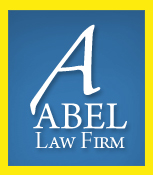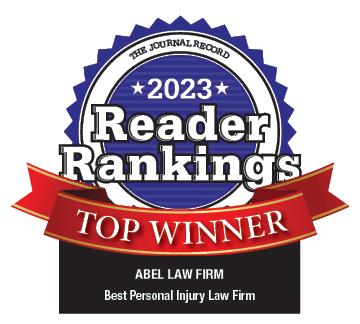Trial
Continuing our survey of what is and is not permissible during closing arguments, other common topics include:
Golden Rule Argument: Juries cannot be asked to put themselves in the shoes of either party or of victims of crimes or their families. The Tenth Circuit has stated: “We note that a Golden Rule appeal ‘is universally recognized as improper because it encourages the jury to depart from neutrality and to decide the case on the basis of personal interest and bias rather than on the evidence.’ …” Blevins v. Cessna Aircraft Co., 728 F.2d 1576, 1580 (10th Cir.1984). However, in Hudman v. State, 89 Okla.Crim.160, 205 P.2d 1175, the prosecutor read an article about the duties of jurors in his closing argument that included “‘In fine, I must apply the Golden Rule by putting myself impartially in the place of the plaintiff and of the defendant, remembering that although I am a juror today passing upon the rights of others, tomorrow I may be a litigant whose rights other jurors shall pass upon.” Id. at 1186. Although the court said reading such an article should be avoided, there was no error in allowing it. Id. (It probably helped that the article commented about putting oneself in the shoes of both parties.)
In a murder case, the court cautioned: “The State should not encourage the jury to impose the death penalty out of sympathy for the victims.” Le v. State, 1997 OK CR 55, 947 P.2d 535, 554–55; see also, Malicoat v. State, 2000 OK CR 1, 992 P.2d 383, 402 (argument “improper and reprehensible”). Asking a jury to consider what the victim and his family lost is improper. In Malone v. State, 2007 OK CR 34, 168 P.3d 185, 232, the court condemned prosecution tactics in second-stage proceedings: “It was improper for the prosecutor to so blatantly suggest that [the defendant’s] jurors should sentence him to death because the family member victims were counting on them to do so. It was improper to so directly and profusely appeal to sympathy for the family member victims. And it was highly improper to seek this sympathy based not only upon the loss of [the victim], but also by invoking the powerlessness, the indignities, and the depersonalization that the American system of trial by jury imposes upon all crime victims and their surviving families. It was likewise improper to imply that … family members should be compensated for their fifteen-month endurance of this painful process by a death penalty verdict from the jury, and that ‘[a]nything less would be a travesty.’ And the prosecutor’s comparison of [the defendant’s] situation (of limited but continuing ‘human contact’) with that of his dead victim (who ‘will never know human contact again’) is yet another version of the infamous, but ever-popular, ‘three hots and a cot’ argument that this Court has so strenuously, but unsuccessfully, sought to eliminate from the Oklahoma prosecutorial repertoire of favorite, death-seeking, closing argument incantations.” Id. The court, in reversing the death sentence, concluded: “[T]he prosecutor’s remarks were egregiously improper and unfairly prejudicial to [the defendant] and … clearly invited passion, prejudice, and arbitrariness into the jury’s sentencing determination in this case.” Id. In second-stage proceedings, however, it is proper to argue the victim felt pain during an attack. See, Alverson v. State, 1999 OK CR 21, 983 P.2d 498, 514.
The use of a Golden Rule argument may not be so prejudicial as to require a new trial. As stated in Hazelrigg Trucking Co. v. Duvall, 1953 OK 196, 261 P.2d 204, 205 (syllabus), “Improper argument by counsel for plaintiff, while not to be condoned, does not call for reversal of verdict for plaintiff where it reasonably appears from whole record that jury was not influenced thereby and apparently followed directions of court not to consider such improper argument.”
Opposing counsel must object because use of the Golden Rule appeal may not be plain error. Blevins, 728 F.2d at 1580: “Although the remarks of plaintiff’s counsel were improper, defendant failed to make a timely objection. We conclude that the remarks do not amount to plain error requiring reversal in the absence of an objection, particularly because of the proper instructions given the jury on the law it should apply in determining liability and damages.” See also, Warner v. State, 2006 OK CR 40, 144 P.3d 838, 890 (error in asking how any punishment other than death penalty would do honor to child victim’s memory cured by objection and admonishment). In Lime v. State, 1971 OK CR 9, 479 P.2d 608, the prosecutor, among other statements, told the jury, “If you do not find one for murder, there will be somebody else’s relative that will be killed by these two men within I will say, a year or two.’” Reversing the conviction, the court emphasized: “To convict and punish a person through the influence of prejudice and caprice is as pernicious in its consequences as the escape of a guilty man.” Id.
Liability Insurance: References to defendants’ liability insurance coverage are highly improper. 12 O.S. §2411; Fed.R.Evid. 411; Matchen v. McGahey, 1969 OK 48, 455 P.2d 52; Tidmore v. Fullman, 1982 OK 73, 646 P.2d 1278, 1281. Such a reference can result in a mistrial. See, Miles v. Seigle, 1977 OK CIV APP 32, 571 P.2d 866, 868 (new trial granted when plaintiffs’ attorney mentioned name of known insurance adjuster): “We hold there where in a jury trial an attorney deliberately injects into the case highly improper questions which have for their only purpose reflections upon the character of the witness, mild rebukes of counsel guilty of such prejudicial conduct cannot be held to cure the injury resulting from such action, and such action constitutes reversible error.” However, if the action is against an insurance company, “insurance” will inevitably be mentionable. See, Coppin v. Shelter Mut. Ins. Co., 1987 OK CIV APP 58, 742 P.2d 594, 598 (how the argument that mentioning insurance “could have prejudiced Shelter escapes us.”) An indirect allusion to insurance might be permissible. In McMullen v. Stevens, 895 P.2d 302,303, the plaintiff’s attorney told the jury not to worry how a judgment might be collected from the two teenage defendants. The court held: “We find that the “collection” statement did not identify a defendant as being covered by liability insurance because (1) there were more than one defendant and (2) the lawyer directly related his “collection” statement to the youthful ages of two of the defendants.” Id. at 304. In Lee v. Volkswagen of America, Inc., 1984 OK 48, 688 P.2d 1283, 1291, referring to the defendant as “Volkswagen Insurance Company” rather than “Volkswagen Motor Company” was insufficient to merit a mistrial.
Per Diem Argument: In a per diem argument, a period of time is divided into smaller units and a dollar value is assessed for each of those units. In Scribner v. Hillcrest Medical Center, 1992 OK CIV APP 117, 866 P.2d 437. 444, 445, the hospital claimed plaintiff’s counsel confused the jury with an imprecise per diem argument, but the court found it did not rise to the level of plain error. Although Colorado purportedly allowed per diem arguments, the federal court in McDonald v. United Airlines, Inc., 365 F.2d 593 (10th Cir. Colo. 1966) was not bound to follow the state court; it was a matter of federal trial court procedure.
Sending a Message: In Bays Exploration, Inc. v. Jones, 2007 OK CIV APP 111, 172 P.3d 217, 223, the landowner’s attorney’s exhortation to “send a message” to the oil company was improper, but the judge’s admonition to ignore the statement cured the error. Prosecutors cannot use a “societal alarm” argument asking the jury to punish the accused for larger societal problems. Mathis v. State, 2012 OK CR 1, 271 P.3d 67, 77.
Taxes: A new law, effective Nov. 1, 2011, mandates OUJI-CIV shall include an instruction notifying the jury that no part of an award for personal injury or wrongful death is subject to federal and state income tax and any damages award shall not be increased or decreased by any consideration for income taxes. “In order to be admitted at trial, any exhibit relating to damage awards shall reflect accurate tax ramifications.” 12 O.S. §577.4. It remains to be seen how argument regarding such exhibits and the instruction will be deemed proper.
Using Pleadings or Confessions: Pleadings are admissible as judicial admissions or statements against interest even if withdrawn or superseded, but may be explained. See, Tway v. Hartman, 1937 OK 536, 75 P.2d 893, 896. It was not plain error and unfair bolstering of evidence in Harjo v. State, 1994 OK CR 47, 882 P.2d 1067, 1076, when the district attorney read some nine pages of the transcript of the defendant’s confession.
Miscellaneous References: Since juries are to follow the instructions of the court, argument should not include biblical references. Fontenot v. State, 1994 OK CR 42, 881 P.2d 69, 85; Powell v. State, 2000 OK CR 5, 995 P.2d 510, 539; Long v. State, 1994 OK CR 60, 883 P.2d 167, 177 (quoting Bible was “intolerable self-serving perversion of Christian faith as well as the criminal law of this State” and “rank misconduct”).
Attorneys should not imply they were prevented from presenting more evidence. See, Satayarak v. State, 1994 OK CR 64, 887 P.2d 1326, 1331 (jury had all the evidence “permissibly available”, “allowable”, “what we could bring”, and “what the law permits you to view”).
It is not necessarily prejudicial in a civil case to use the words “guilty” or “convict”. See, Mills v. Grotheer, 1998 OK 33, 957 P.2d 540, 544.
Objections Must be Made: The record on appeal must contain an objection to any alleged misconduct. “It is a well established rule of this Court that defense counsel must object, in a timely manner, to objectionable statements. Failure to do so waives all but plain error.” Bland v. State, 2000 OK CR 11, 4 P.3d 702, 726. Error is cured where a defendant’s objection to improper argument is sustained. Mack v. State, 2008 OK CR 23, 188 P.3d at 1289. If there has been misconduct in a trial, the aggrieved party may move the court to declare a mistrial, but by failing to do so “will be deemed to have taken his chances with the jury.” Lawton Transit Mix, Inc. v. Larson, 1969 OK 83, 455 P.2d 696, 697; English v. Wal-Mart Stores, Inc., 2001 OK CIV APP 5, 16 P.3d 1136, 1142.
Professional Responsibility: In Garrison v. State, 2004 OK CR 35, 103 P.3d 590, 612, although prosecutors’ actions did not warrant reversal, the court lamented: “[W]e continue to find it unsettling that prosecutors would push the boundaries of professionalism. First, as we have said previously, it defies common sense to use argument that can snatch defeat from the jaws of victory. … And second, arguments previously ruled improper by this Court can be grounds for disciplinary complaints to the Oklahoma Bar Association.”
Basically, advocacy must be vigorous but stay within the bounds of presenting a fair trial based on evidence — not prejudicial appeals to emotion.
—Lynn Brusin Mares


